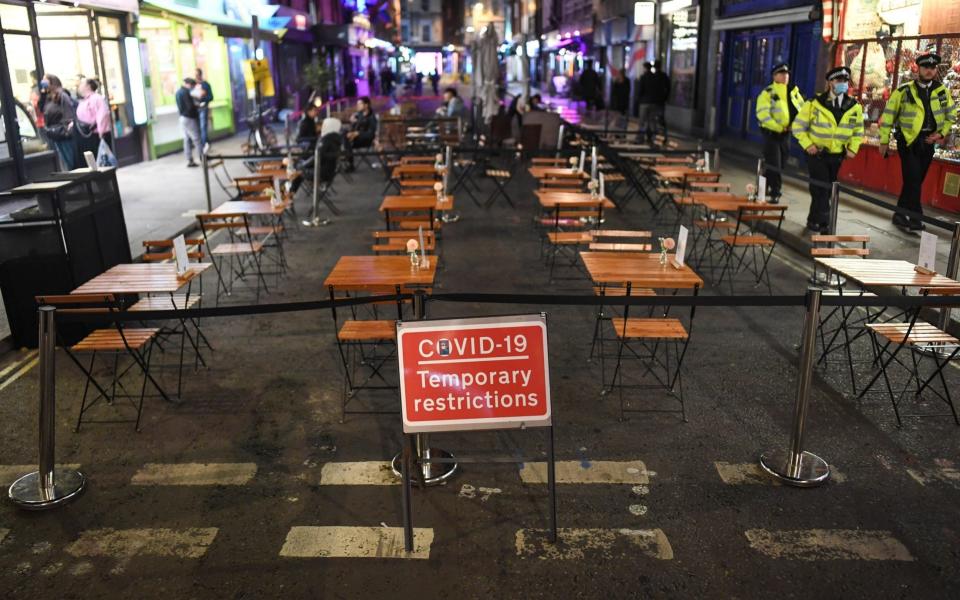More than one million jobs at risk as businesses prepare redundancy notices

More than a million workers face being handed redundancy notices next week as firms race to slash staff costs before the taxpayer-funded furlough scheme comes to an end.
Companies in the battered hospitality and conferencing industries say they have been left with no choice but to begin mass sackings as Government support is withdrawn.
Rishi Sunak's £39bn wage subsidy for employees unable to work is ending on October 31 - meaning companies which can no longer afford to pay their staff must start the month-long redundancy consultation process within days.
Industry chiefs expect around 1m hospitality workers to be axed, along with 300,000 employees in the once-burgeoning events trade.
Both industries have suffered a crushing blow after after office workers were told to stay at home and a 10pm closing time imposed on pubs and restaurants to restrict the spread of Covid.
Although Chancellor Rishi Sunak is introducing a new scheme to subsidise workers who come back part time, bosses said there simply will not be enough demand to support the jobs being lost.

Kate Nicholls, chief executive of trade body UK Hospitality, said: “The restrictions imposed on the sector are so significant that this is not enough to stave off redundancies.
“Parts of the sector are still closed by legislation - events, functions, nightclubs. There is no way you can afford to pay any wages when you have no revenue coming in.”
Before the Chancellor’s announcement around 560,000 hospitality jobs were expected to be lost, according to the industry group, but that could now rise as high as 1m because his new support is so much less generous than furlough.
Chris Skeith, chief executive of the Association of Events Organisers, said 90,000 of his industry’s 114,000 employees are likely to lose their jobs in the coming weeks.
He said: “This new package of measures are no help.
“Businesses have not been able to trade, there is no income coming in, there is nothing to produce. You cannot employ someone for one-third of the week because there is no money coming in and there is nothing for them to do.”
The wider events industry could lose as many as 300,000 of its 600,000 staff, he estimated.
Both industry groups are asking for more support in recognition that regulations are keeping them closed.
But Government borrowing has already soared to record levels, with the deficit hitting £173bn in just five months according to official figures released on Friday - far more than in the entire worst year of the financial crisis.
Even industries which have been able to open are in turmoil as the pandemic changes customers’ habits.
Retail sales have climbed back above their pre-Covid levels, but much of that growth is online, not the high street.
Lord Simon Wolfson, the chief executive of retailer Next, told the BBC that the industry is facing huge upheaval as fewer staff are required on the shop floor, though more are needed in distribution and customer service for online sales. He estimated that hundreds of thousands of jobs are at risk.
Richard Lim, of Retail Economics, said: “Retailers are scrambling to adjust.
“As they prioritise the online channel and Government support packages are eased, further store closures and job losses can be expected”.
The scale of these job losses could nearly double the unemployment rate.
Torsten Bell at the Resolution Foundation said it is “more than possible” unemployment could surge by 1.2m, on top of the 1.4m already jobless in the summer.

 Yahoo Finance
Yahoo Finance 